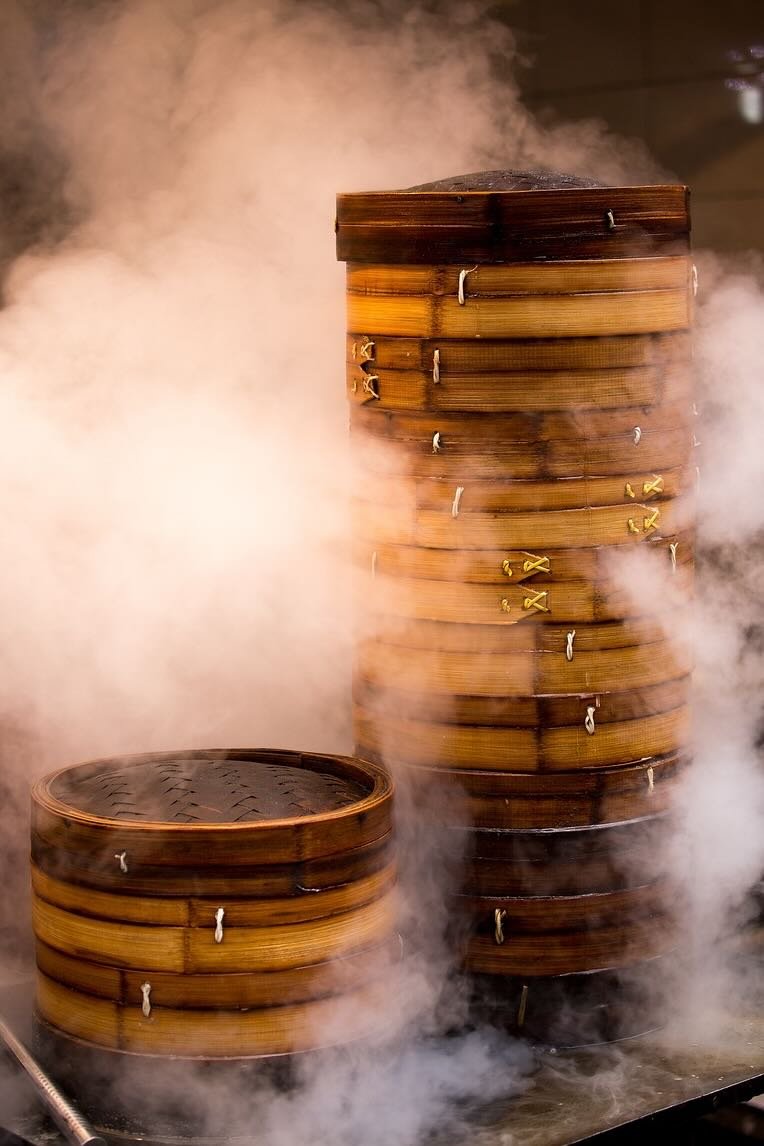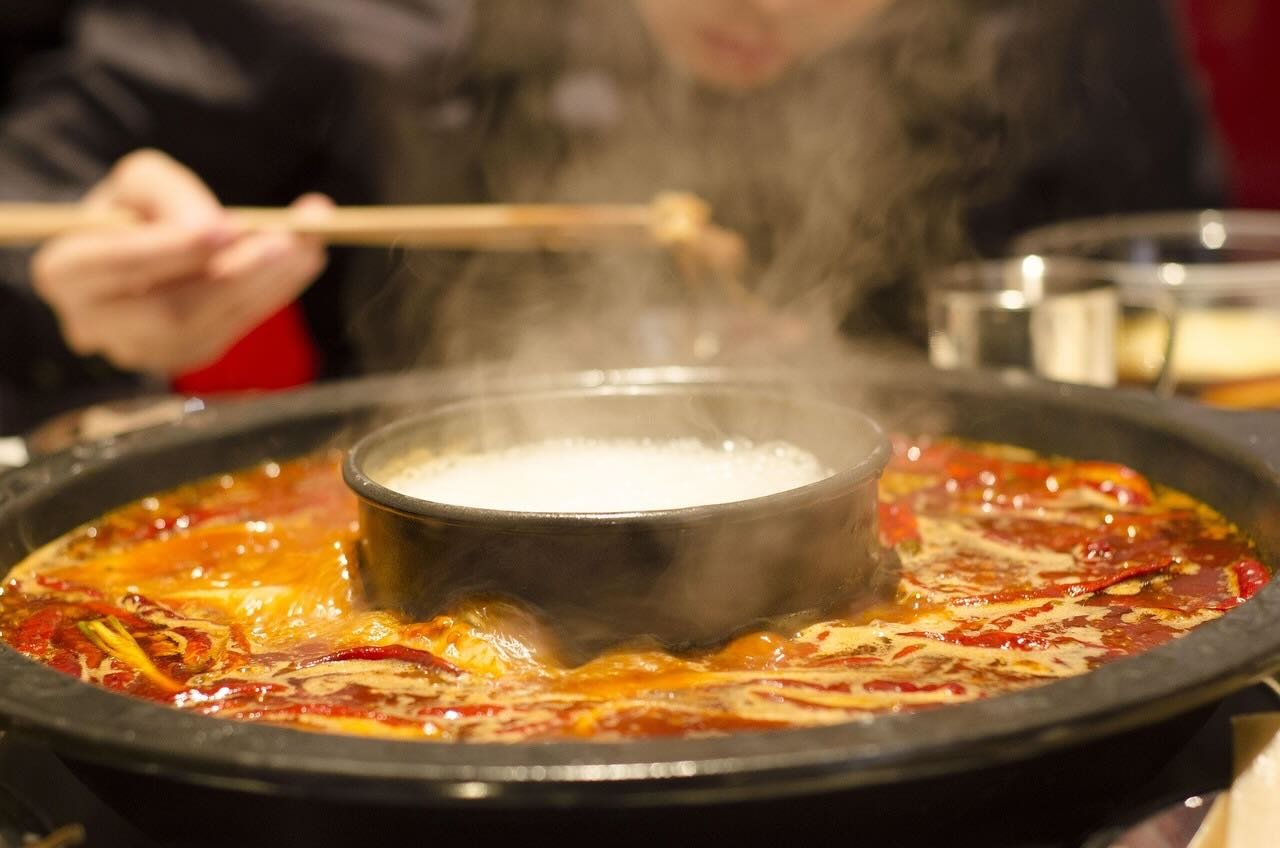 I was just sitting down to enjoy a hot and mildly spicy bowl soup with dumplings that I made for lunch. And as usual, my nose started to run.
I was just sitting down to enjoy a hot and mildly spicy bowl soup with dumplings that I made for lunch. And as usual, my nose started to run.
I don’t have a cold at the moment, and neither do I have allergies.
So why does my nose run when I eat hot food?
This prompted me to just google it.
Boy, was I surprised that this common phenomenon has a name: gustatory rhinitis.
So what is actually happening when your nose turns into a faucet mid-meal?
🔬 The Nose Knows: Understanding the Reaction
Your nose is more than just a breathing apparatus—it is a sensory powerhouse.
It detects smells, filters air, and plays a key role in immune defense. But it is also incredibly sensitive to environmental triggers, including temperature, aroma and chemical compounds found in food.
When you eat something spicy or warm, your body reacts in a way that is meant to protect and regulate. The heat from the food or the chemical irritants (like capsaicin in chili peppers) stimulate nerves in your face—particularly the trigeminal nerve, which is responsible for sensations in your face and nasal passages.
This stimulation causes your nasal glands to produce mucus. Not because you are sick, but because your body is trying to flush out what it perceives as an irritant.
The result?
A runny nose, often accompanied by postnasal drip or mild congestion: this is gustatory rhinitis.
🌶️ Spicy vs. Hot: What’s the Difference?
It is important to distinguish between “spicy” and “hot” in this context.
Spicy refers to foods that contain pungent compounds—think chili peppers, wasabi, horseradish, or black pepper. These foods contain chemicals that activate pain receptors and heat sensors in your mouth and nose.
Hot, on the other hand, refers to temperature. Steaming soups, sizzling stir-fries, and freshly baked dishes can release vapor and aromatic compounds that irritate nasal tissues. Even without spice, very warm foods can trigger a similar reaction.
Both types of food can lead to the same outcome: a watery nose and a sudden need for tissues.

👃 Who’s Most Likely to Experience It?
While anyone can experience gustatory rhinitis, it tends to be more common in adults over the age of 50.
As we age, our nasal tissues become more sensitive, and our bodies may produce more mucus in response to stimuli.
However, younger individuals aren’t immune. People with naturally sensitive nasal passages, or those who frequently consume spicy foods, may notice this reaction more often.
Interestingly, some people experience it only with specific dishes—like Thai curry or hot ramen—while others find that even mildly warm meals can set off their nasal faucet.
🧠 The Role of the Nervous System
The key player in this reaction is the autonomic nervous system, which controls involuntary bodily functions like heartbeat, digestion, and glandular activity.
When you eat spicy or hot food, the parasympathetic branch of this system kicks in, activating glands in your nose and mouth.
This is part of a broader phenomenon known as reflexive glandular stimulation. It is the same reason your mouth waters when you smell something delicious, or your eyes tear up when chopping onions. Your body is reacting to sensory input with protective secretions.
In the case of your nose, the glands produce mucus to flush out irritants and maintain moisture in the nasal passages.
🧪 What Is Gustatory Rhinitis?
Gustatory rhinitis is the clinical name for this condition.
It falls under the umbrella of nonallergic rhinitis, which refers to nasal symptoms not caused by allergens like pollen, dust, or pet dander.
Unlike allergic rhinitis, which involves an immune response, gustatory rhinitis is purely neurological and glandular. There’s no inflammation, no histamine release, and no long-term damage. It is simply your body reacting to food stimuli in a very efficient (if slightly annoying) way.
Gustatory rhinitis symptoms typically include:
- Clear, watery nasal discharge
- Postnasal drip
- Mild nasal congestion
- Occasional sneezing
These gustatory rhinitis symptoms usually resolve shortly after the meal ends, and they don’t require medical treatment unless they become chronic or disruptive.

🧴 Can You Treat or Prevent It?
If your runny nose is more than just a minor inconvenience, there are ways to manage it.
Here are a few strategies:
1. Avoid Trigger Foods
This might sound obvious, but identifying and avoiding the foods that trigger your symptoms is the first step. Keep a food diary to track which meals cause the most nasal activity.
2. Use Nasal Sprays
Anticholinergic nasal sprays, such as ipratropium bromide, can help reduce glandular secretions. These are often prescribed for people with chronic nonallergic rhinitis, including gustatory rhinitis.
3. Try Saline Rinses
A gentle saline rinse before meals can help clear out irritants and reduce sensitivity. It is a simple, drug-free way to prep your nasal passages.
4. Eat Slowly and Cool Your Food
Letting food cool slightly before eating can reduce the temperature-related triggers. Eating slowly also gives your body time to adjust and may lessen the intensity of the reaction.
5. Consult a Specialist
If your gustatory rhinitis symptoms persist or worsen, a visit to an ENT (ear, nose, and throat) specialist can help rule out other conditions and recommend targeted treatments.
🍽️ Living With the Sniffles
For most people, this condition is more of a quirky inconvenience than a serious health issue.
It doesn’t affect taste, digestion, or overall health. But it can be embarrassing—especially in social settings or business lunches.
If you are someone who loves spicy food but hates the nasal aftermath, you are not alone. Many food lovers experience this, and it is often seen as a badge of honor in cultures where spice is celebrated.
In fact, some chefs and food critics embrace the reaction as part of the full sensory experience of eating. The sniffles, the sweat, the tingling lips—it’s all part of the culinary adventure.
🧭 Now You Know!
Your body is a marvel of sensory responsiveness.
The fact that it reacts to food with such precision and speed is a testament to its complexity. While gustatory rhinitis might be a mouthful to say, it’s a harmless and fascinating example of how our bodies interact with the world around us.
So the next time your nose runs during dinner, don’t be alarmed. It is just your body doing its job—keeping you safe, regulated, and ready for the next bite.